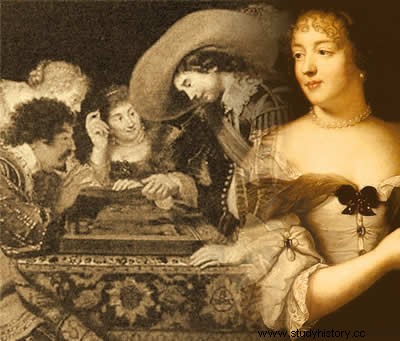
By Rainer Sousa
If in the medieval period prostitutes were the target of a dilemma between faith and necessity, we realize that the times of the renaissance undertook another set of questions and values to this same type of work. activity. After all, the development of cities established a growth of such activity among the various men who circulated among the fairs and trading houses of that time.
In these new times, we realize that the marginalization of prostitutes through the use of special clothes and accessories has begun to lose its strength. In fact, these icons of social exclusion were necessarily used only when a woman suffered judicial punishment for the crimes of adultery, licentiousness or prostitution. Furthermore, it is not very difficult to see that the profession of prostitutes has undergone a notable increase in value.
The most famous courtesans of that time were not available in brothels. Many of them lived in a secluded environment and had the opportunity to deliberately choose who they wanted to provide their services to. Those who dabbled in rich lovers could make a great fortune. However, this kind of opportunity was only possible among prostitutes who were clean, looked good, dressed well, spoke more than one language, played instruments, and recited poems.
Although popular brothels still existed, prostitutes already lived in a different situation through these demands and elements of distinction. According to some surveys, Catholic countries stood out for giving greater space to prostitution that served as entertainment for the aristocracy. Already in the countries taken over by Protestantism, the persecution was rigid to the point of branding the bodies of prostitutes with a hot iron, beating them in public or cutting their hair.
In times of intense commercial activity, some mercantile cities were concerned with the adoption of laws and policies that would regulate the exercise of prostitution. After all, an urban nucleus was not only famous for the spices it sold at its fairs. In some cases, local governments organized pension systems for their prostitutes or organized the brothel as a public space, in which part of the earnings was taken as a tax.
